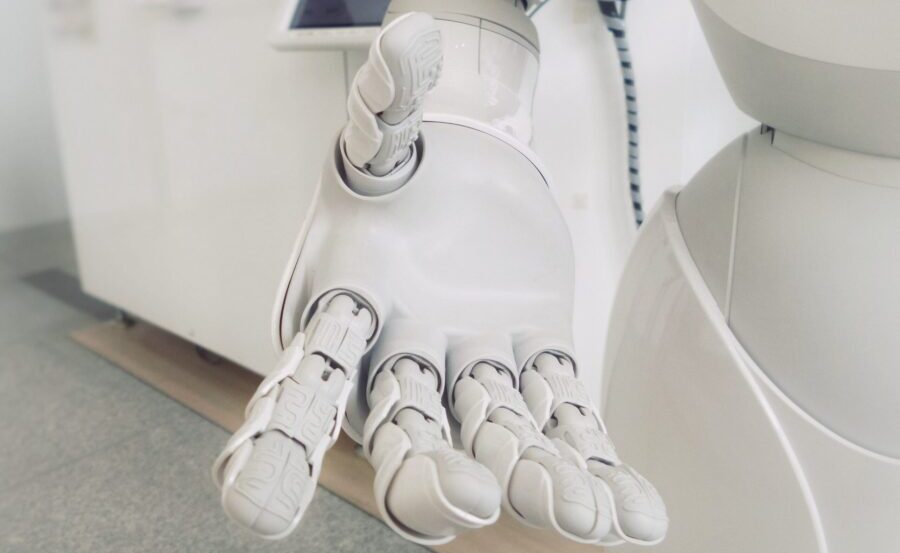Artificial intelligence (AI) has rapidly become a buzzword across global industries. Project management is no different. It is becoming increasingly difficult to find an article or podcast surrounding project management that does not mention artificial intelligence.
Broadly speaking, AI is a branch of computer science that provides algorithms to ‘think’ and act like humans. In the world of project management, it is a transformative force that offers a level of speed and accuracy that can drastically improve project management processes.
Despite constantly being referred to as ‘the future’, AI has already infiltrated into project management tools and processes. The Project Management Institute’s 2023 annual global survey found that 21% of respondents were already using AI always or often in the management of their projects.
In this blog, we will address how artificial intelligence can be used throughout the project life cycle as well as the developing relationship between AI and project management software. We will also consider one of the most pressing questions – how will AI impact the role of project managers?
How Will Artificial Intelligence Change Project Management?
Approximately $48 trillion is invested into projects each year, however, only 35% of projects are considered to be successful. The other 65% experience overwhelming levels of wasted resources, cost overruns, and unrealised benefits.
Harvard Business Review highlights that the low level of maturity for technologies managing projects is a leading cause for low project success rates. Many organisations in the energy industry use spreadsheets and separate systems. However, these tools are insufficient to meet the needs, size, and adaptability of their projects.
Artificial intelligence will play a pivotal role in transforming the way project teams operate. For example, in the construction industry, project teams are already using drones to monitor and record information such as materials and machinery being used on sites. AI processes this information to update project reports and schedules, demonstrating how AI can streamline project tasks.
A few other examples of the uses of AI across the project life cycle include:
- Scheduling and Planning: Coordination of resources, timelines, and budgets is key within project management. Machine learning algorithms can be used to optimise project schedules so that project costs are reduced and the chances of delays are minimised.
- AI can streamline task automation by handling routine and time-consuming tasks like data entry, report-writing, and creating presentations. This helps teams focus on harder tasks and reduces the risk of mistakes. Virtual assistants and chatbots help with scheduling meetings and sending reminders to project teams during projects.
- Resource Management: AI can use historical project data and project requirements to identify patterns and reveal the best allocation of resources. For example, actively identifying the right people with the appropriate skills and availability for the project. AI could significantly reduce the extreme resource waste that plagues many projects.
- Cost estimation: AI will be able to improve budgeting and support project teams with how best to distribute their resources by using past data to formulate more accurate cost estimates.
- Risk Management and Mitigation: This is one of the most beneficial areas of AI in project management as proactivity is key in managing risk. AI can use historical data to find patterns, predict risks, and alert project teams to problems and suggest solutions.
Ultimately, artificial intelligence enables project managers to be even more proactive. AI removes the chances of human error whilst saving project teams valuable time by automating less complex tasks. These various benefits contribute to lowering the chances of cost overruns and delays and improving project outcomes.
As artificial intelligence continuously learns and evolves the more beneficial it will be to project teams. However, training AI algorithms to manage projects requires lots of data sets that have to be gathered and cleaned before being used.
How will Artificial Intelligence affect the role of the Project Manager?
Despite the growing dominance of AI, PMI’s recent research revealed that 49% of surveyed individuals possess little to no understanding or experience with AI in the context of project management. PMI states that knowing the basics of AI is non-negotiable at this stage. They outline that project managers who adopt and leverage this emerging technology are putting themselves in the best position.
A new report by PwC highlights the important connection between artificial intelligence and project managers. Project managers need the right skills to handle AI, and AI relies on skilled project managers for input and value.
However, this does not detract from the fact that the transition to using AI is a daunting thought for project teams. At a recent event, the Proteus team talked to project managers who were uneasy about using AI and automation for project tasks.
Despite this uneasiness, it is difficult to argue with the unrivalled support that AI can supply to project managers. The technology will enhance decision-making capabilities and help project teams to navigate the complexities of projects. This in turn will lead to things such as less resource waste, better margins, and an overall increase in successful project outcomes.
The relationship between Artificial Intelligence and Project Management Software
Project management software has been a game-changer in the field of project management. Proteus provides real-time insights into project data, allows tracking of KPIs, and gives overall improved project control, visibility, and accuracy.
Project management software breaks down data silos and disconnected systems enabling project managers to make data-driven decisions with confidence.
Artificial intelligence integrated into project management systems will further enhance the agility and responsiveness of project management processes. AI-driven project management systems require a significant amount of data. With enough data, they’re able to highlight ‘what if’ scenarios and proactively alert project teams before issues develop into greater problems as well as automate processes.
AI is a high priority for the in-house development team at Proteus and plays an integral role throughout the product. For example, the work breakdown structure functionality integrates automated forecasting and planning based on best fit. New AI innovations are currently in development and will feature across the workflows, such as proposal writing.
New technologies are changing quickly. Project managers should use them to make their projects successful and keep their organisations competitive in the industry.
Conclusion
Artificial intelligence will transform the way projects are planned, executed, and delivered. From automating routine tasks to optimising resource allocation, artificial intelligence can streamline every aspect of the project life cycle.
Although it is a daunting change, project managers must embrace these new technologies. AI is a powerful tool that will enable projects to run as smoothly and efficiently as possible.
About Proteus Project Software
Xergy Group’s Proteus project management software works with your existing systems and scales as your business grows. Created by project management leaders, for the diversified engineering consultancy sector, Proteus delivers an end-to-end work management software platform with detailed workflows from the early opportunity stage through to project delivery.
Proteus’ end-to-end project management software is a cloud-based system designed for businesses of all sizes to handle projects of unlimited complexity. Proteus is compliant with common project management frameworks and ISO standards. Each feature aims to make bottom-line improvements by improving utilisation, streamlining workflows, providing quick and efficient access to resources, and reducing overheads. Check out some of our client case studies to learn more about how Proteus makes a tangible difference.
How to get Proteus
We recommend getting setup on a free trial. Proteus operates under a software-as-a-service (SaaS) model. We offer Enterprise packages and flexible pricing solutions: contact our team to learn more.
We designed Proteus to be simple, and that means you can get up and running on Proteus without an IT team or support from a programmer. You will want to spend a bit of time configuring the admin console so that you have everything set up to suit your company structure, but it’s very intuitive and you don’t need a PhD in IT. However, we want you to get the best out of what is a brilliantly powerful tool, so don’t hesitate to ask for our support. We have a team of product experts who are ready to help you with the configuration process, so get in touch today by filling out the form below:



